#French comedy-drama film
Text

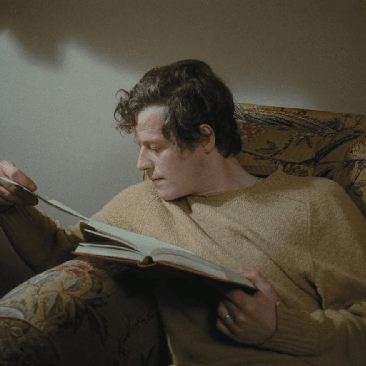
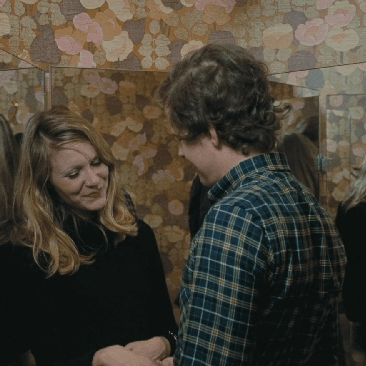
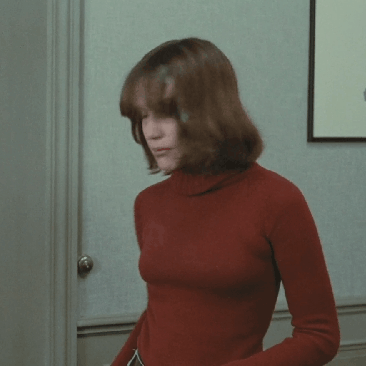
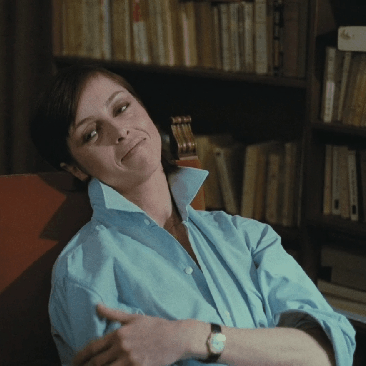

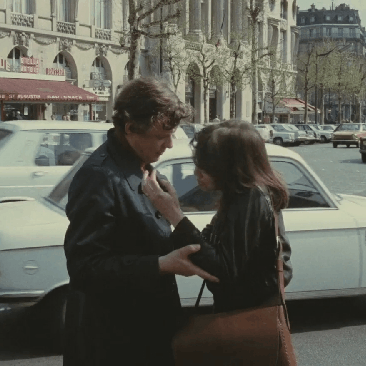



L'Amour l'après-midi (1972)
Dir. Éric Rohmer
#L'Amour l'après-midi#eric rohmer#love in the afternoon#drama#comedy#romance#zouzou#françoise verley#bernard verley#film#filmedit#movie#movieedit#moviegifs#filmgfis#my gifs#cinemetography#french movie#french#70s
43 notes
·
View notes
Text
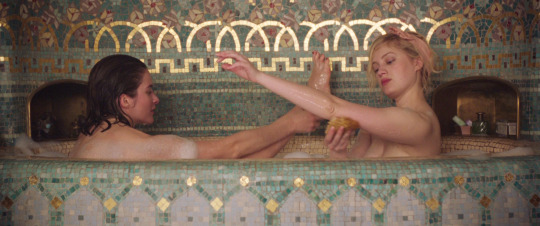
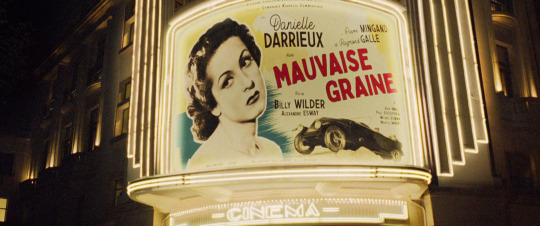
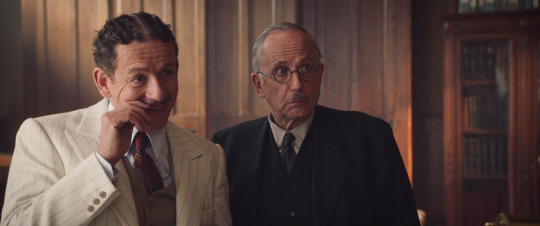

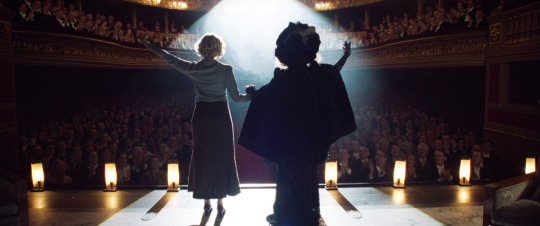


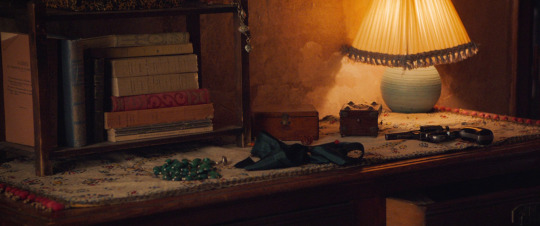


"Un peu mélodramatique."
Mon Crime (The Crime is Mine), 2023.
Dir. & Writ. François Ozon | DOP Manuel Dacosse
#mon crime#François Ozon#isabelle huppert#french film#comedy#period drama#crime comedy#2020s#10 frames
14 notes
·
View notes
Photo
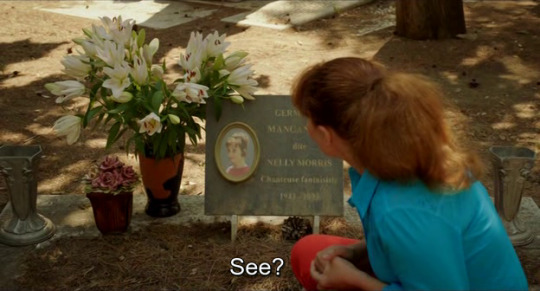


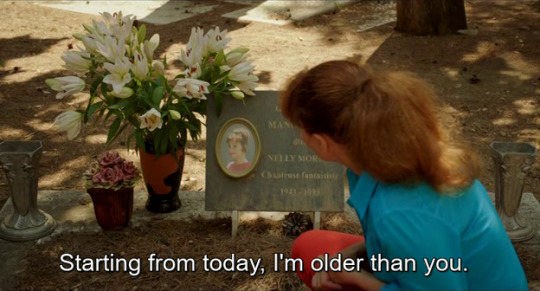
Au Fil D'Ariane [Ariane's Thread] (Robert Guédiguian - 2014)
#Au Fil D'Ariane#Ariane's Thread#comedy-drama film#sagesse#Robert Guédiguian#French cinema#Ariane Ascaride#France#Jean-Pierre Darroussin#Jacques Boudet#Anaïs Demoustier#European cinema#Youssouf Djaoro#Lola Naymark#famille#Bouches-du-Rhône#Marseille#Marsiglia#Serge Valletti#vie#amphithéâtre romain#réalisme poétique#bateau#restaurant#amitié#amistad#cimetière#nostalgie#amis#Europe
57 notes
·
View notes
Text
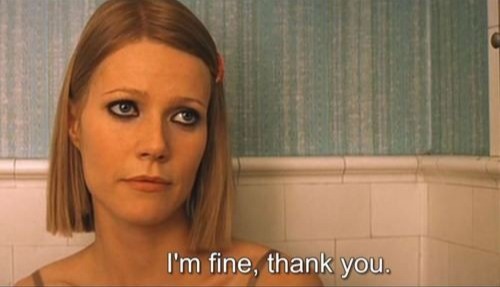
Margot Tenenbaum, known for her extreme secrecy, is but a sore liar. With a stunning economy of words, she says, "I'm fine, thank you." When indeed her whole life was crashing in ebbs and flows. She was broken and she knew that no amount of cigarettes, wooden fingers or sexual escapades could fix that.
The Royal Tenenbaums (Wes Anderson, 2001)
#margot tenenbaum#the royal tenenbaums#gweneth paltrow#wes anderson#bill murray#owen wilson#luke wilson#movie quotes#quotes#film stills#romance#romance drama#big mood#moodoftheday#current mood#comedy#romantic comedy#anjelica huston#ben stiller#french dispatch#darjeeling limited#rushmore#life aquatic#the grand budapest hotel#timothee chalamet#saorsie ronan#moonrise kingdom#fantastic mr fox#isle of dogs#favourite films
96 notes
·
View notes
Text

Les nuits de la pleine lune
#les nuits de la pleine lune#full moon in paris#eric rohmer#éric rohmer#film#movie#france#french#french film#french cinema#drama#romance#romantic comedy#comedy#80’s#80's#80s#1980’s#1980's#1980s
23 notes
·
View notes
Text
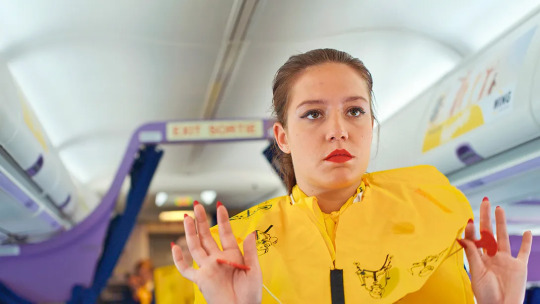




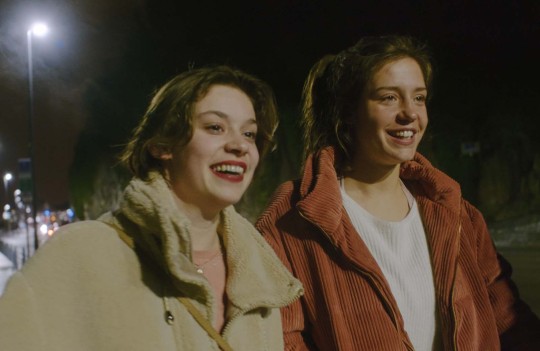
RIEN À FOUTRE (2021) dir. Emmanuel Marre & Julie Lecoustre
Sources : allocine.fr - vanityfair.fr - condor-films.fr
#just watched#Rien à foutre#Zero Fucks Given#Emmanuel Marre#Julie Lecoustre#Adèle Exarchopoulos#french movie#comedy drama film#flight attendant#cinema#2020s movies#Cannes Film Festival#film#movie
4 notes
·
View notes
Text

The Chorus or Les Choristes (2004)
Fond de l'Etang is a boarding school for troubled boys located in the French countryside. In the mid-twentieth century, it is run by the principal M. Rachin, an egotistical disciplinarian whose official unofficial mantra for the school is "action - reaction", meaning that there will be severe consequences for any boy out of line. This approach does not seem to be working as the boys as a collective are an unruly bunch. In turn, the teachers don't teach, but are always watching out for the next subversive act from the boys. January 15, 1949 marks the arrival to the school of the new supervisor, M. Clément Mathieu, a middle-aged man who is grasping at finding his place in life after a series of failed endeavors. Although he does find the boys an unruly lot, Mathieu does not believe in the "action - reaction" policy, and as such, butts heads with Rachin while secretly undermining the policy. Slowly, Mathieu's approach of trying to match the discipline to the crime does have a positive effect on a handful of students. With the reluctant approval of Rachin, Mathieu begins a grander experiment of trying to transform the overall atmosphere within the school, core within the experiment being to start a choir among his students. This move is a difficult one for him as a failed musician, as well as for the initially reluctant students. During this process, Mathieu focuses on two different students for two different reasons. Pépinot, a younger boy, seems to lack guidance and focus, and who always says he is waiting for Saturday when his father will pick him up, he who never does. And Pierre Morhange, an older student, is the anachronism: introverted, but prone to outbursts of individual subversiveness - the devil with the face of an angel as the other teachers describe him. Behind the reason for his subversiveness, which Mathieu slowly learns, Morhange hides a love of music and a true talent in it. Beyond overcoming the obvious obstacles of Rachin and the students' skepticism and Rachin's egotism, Mathieu has another challenge in newly arrived Pascal Mondain, a truly troubled older boy with pathological tendencies whose presence alone may wreak havoc throughout the school, and not just with Mathieu's project. Over fifty years later, Morhange and Pépinot, who have not seen each other since that time and who did not spend that much time together while at school, are reading through Mathieu's memoirs from his time at the school, which unmasks the reason why the two are privy to the memoir and the effect he had on their lives.~imdb~
#the chorus#les choristes#french film#film#cinema#period drama#comedy#drama#music#boarding school#choir#troubled boys#France#late 40s#music conservatory#talented#gifted#teacher#awarded film#just rewatched
9 notes
·
View notes
Text
On January 25, 2003 Amelie debuted in Italy.
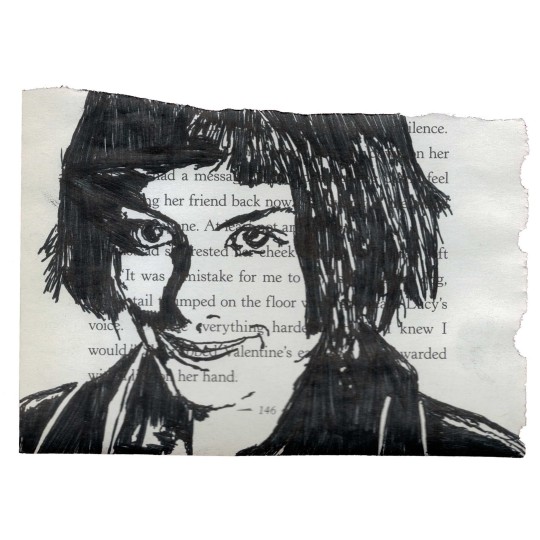
#amelie#amelie 2001#le fabuleux destin d'amélie poulain#comedy film#rom com#romantic comedy#romantic drama#french film#french movie#movie art#art#drawing#movie history#pop art#modern art#pop surrealism#cult movies#portrait#cult film#re animator
1 note
·
View note
Text
France: A Highbrow Satire That Won't Leave Many Laughing
France: A Highbrow Satire That Won’t Leave Many Laughing
2/5
Written by Luke Barnes
Summary
A well respected French journalist, played by Léa Seydoux, decides to quit her job and seek new horizons after she has a road traffic accident that leads to someone else getting hurt.
In many ways I think the humour of this film just didn’t register with me, there were a few lines that made me laugh and I think the film did manage to formulate some…

View On WordPress
0 notes
Text
The NFB's Adds 2 New Comic Strip Chronicles and is Presenting at the Montreal Comic Arts Festival!
@TheNFB has been very busy lately! Their #comicstrip chronicles has expanded with two new additions, and there's two events in #montral to see them at! The deets at why #comicbooks and #animation matters is also discussed! Deets on where to find them at:
The National Film Board of Canada has humour and serious drama in store with two pieces now in its online Comic Strip Chronicles Collection. This series of shorts looks at the strong connection that exists with comic strips–in its traditional Sunday funnies format–with animation. When considering the latter, it also delves deep into thoughtful experiences too.
More events are planned this…
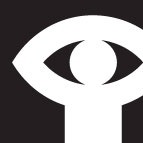
View On WordPress
0 notes
Photo

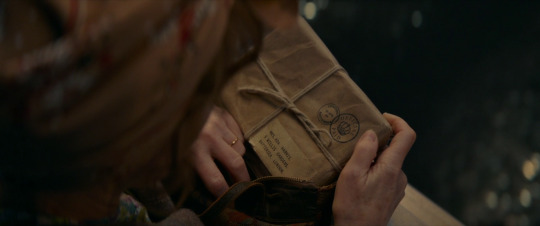
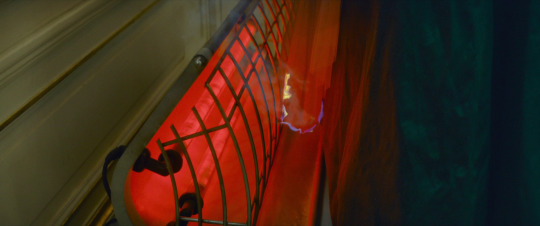

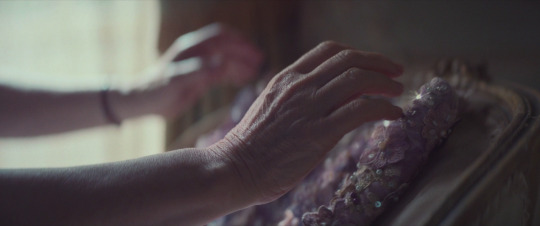
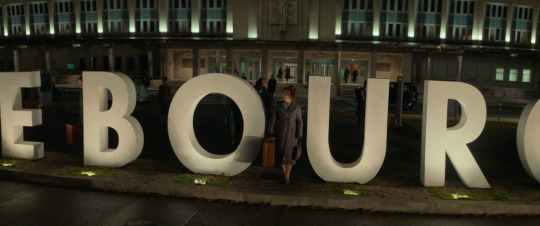
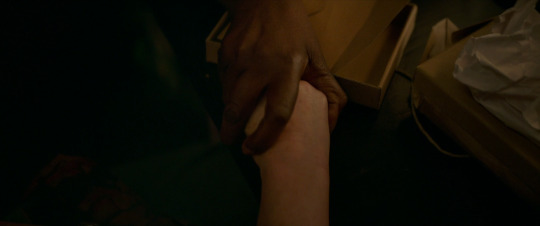
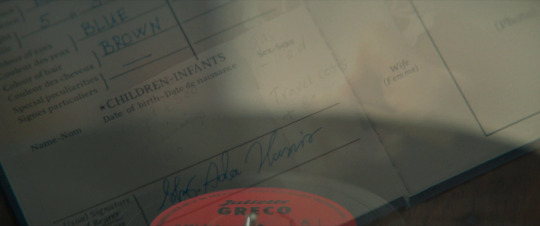
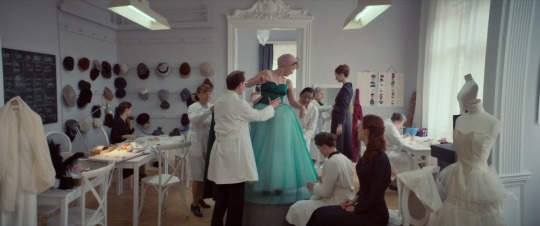
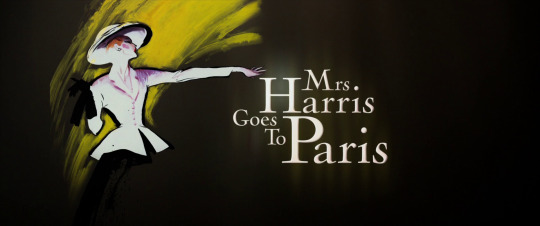
“Today, there’s Mrs. Harris.”
Mrs. Harris Goes To Paris, 2022.
Dir. Anthony Fabian | Writ. Carroll Cartwright, Anthony Fabian, Keith Thompson & Olivia Hetreed | DOP Felix Wiedemann
#mrs harris goes to paris#anthony fabian#lesley manville#british-french film#2020s#10 frames#comedy-drama#period piece
27 notes
·
View notes
Photo
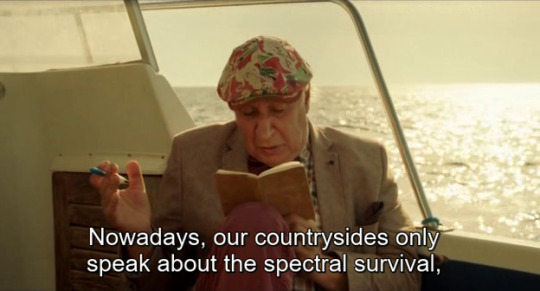


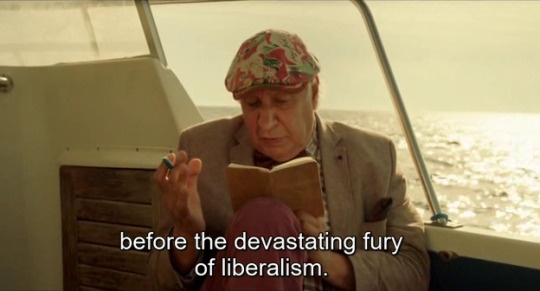
Au Fil D'Ariane [Ariane's Thread] (Robert Guédiguian - 2014)
#Au Fil D'Ariane#Ariane's Thread#comedy-drama film#beauty#Robert Guédiguian#French cinema#Ariane Ascaride#France#Jean-Pierre Darroussin#Jacques Boudet#Anaïs Demoustier#European cinema#Youssouf Djaoro#Lola Naymark#Europe#environmental movement#climate change#liberalism#earth#Bouches-du-Rhône#Marseille#Marsiglia#Serge Valletti#sea#roman amphiteatre#poetic realism#turtle#boat#restaurant#friendship
3 notes
·
View notes
Text
youtube
new video about Edgar Wright's Cornetto Trilogy, and how everyone* keeps getting them wrong! this video is sponsored by Nebula, a place where you can watch the original version of this video before I had to tweak it for YouTube's copyright bots. (by clicking that link, you can get an annual subscription for 40% off.) or you can just back me on Patreon, which is also cool and good.
transcript below the cut.
I adore Edgar Wright’s Cornetto Trilogy. I flirted with making a video about it ages ago, had a draft of a script, but ultimately decided it wasn’t about anything except “here’s a thing I like, and here are its (I thought) very obvious themes.” So I shelved it. But, in the years since, I have seen multiple video essayists on this here website claim that these movies are about growing up and taking responsibility. (I say “multiple.” It’s not a lot. But it’s more than one! And that’s enough.)
These people are 100% wrong.
Lemme lay it out: the Cornetto Trilogy is not about growing up. It is not about taking responsibility. It is the exact opposite, and that’s not subtext. It is three movies about stunted manchildren thrust into extraordinary circumstances, and each, in the end, is saved - is redeemed - by abandoning his character arc and failing to grow or change. It is a three-part love letter to immaturity.
And I guess I have to set the record straight.
Sometimes making a video about a thing you love is an act of appreciation. And sometimes it’s out of spite.
The Cornetto Trilogy is three movies: Shaun of the Dead, Hot Fuzz, and The World’s End. All three are written by Simon Pegg and Edgar Wright; Pegg stars, and Wright directs; all three center on a relationship between Pegg and real-life best friend Nick Frost, which makes each film a reunion of the core team behind Spaced (excepting, but for a small role in Shaun of the Dead, Jessica Hynes). The three films span three genres: zombie apocalypse, buddy cop, alien invasion; each features a Cornetto ice cream cone: strawberry to represent blood, original blue to represent the police, and mint to represent little green men; this is a joking nod to Krzysztof Kieślowski’s Trois Couleur films, Bleu, Blanc, and Rouge, which were based on the colors and themes of the French flag (I don’t care what you say, Emily: #TeamRouge); that nod is funny because Trois Couleur is high-art drama and these are comedies. All three are parodies of, tributes to, and actually surprisingly good executions of their respective genres. And the hook, the gag at the center of all these movies, is that Simon Pegg plays a character wholly unsuited to be starring in this kind of film.
Shaun, the burnout, is the wrong person to survive the zombie apocalypse; by-the-book British bobby Nicholas is the wrong person to lead an American-style bombastic actioner; and alcoholic asshole Gary is the last person to save the world from aliens.
And I think that’s where people get stuck. Because “schlub finds himself protagonist of a genre film” is the elevator pitch for like a dozen Adam Sandler movies. The genre trappings may be as mundane as parenthood or mandated anger management classes, or as high-concept as action movie, whodunnit, or time travel It’s a Wonderful Life if Clarence were Christopher Walken as the angel of death (that… that makes it sound good, it’s not, don’t see Click; leave Frank Capra alone, Adam). But all these movies have the same basic shape: an extraordinary situation forces a guy to confront his shortcomings, which always stem from having never grown up. And you probably haven’t seen all of these movies, but if you’ve seen any, I bet you have assumptions about how the rest end: even though “Adam Sandler acts like a child” is generally the selling point of an Adam Sandler movie, they all end with some lip service toward becoming an adult: hey man, grow up a bit; appreciate your family a little more; square your shoulders; clean your room. This is so standard, it was parodied mercilessly in Funny People.
And this was a formative microgenre for my generation! Whole universe turns itself upside down to teach some shitty dude to, like, do the dishes and pay his wife a compliment now and then - Liar Liar, Bruce and Evan Almighty (all directed by the same guy, by the way). So I don’t blame people of a certain age for seeing the first act of Shaun of the Dead and thinking “I know where this is going.” And when, at the last minute, it swerves and goes someplace else, you could read that as a gag, a final subversion of expectation, still the same basic shape. But no! No! Once is a gag - thrice??? Thrice is a thematic statement!
So lemme make my case. I’ma take you through these movies one by one - we’ll talk about the manchildren and the expectations set by the genre, and then we’ll talk about that last-minute swerve and what it means. And then you’ll tell me I’m right and apologize!
Shaun of the Dead:
Shaun is a man in his twenties. What kind of manchild is he? He’s the slacker.
What is his problem? He needs to sort his life out. Shaun doesn’t know how to take action. He hasn’t advanced since college - he’s been working the kind of job a teen takes over the summer for like a decade, lives with the same best friend, has the same petty fights with his stepdad, goes to the same pub every week with the same group of people. He can’t make a reservation, he can’t manage a calendar, he’s a washup. This makes his girlfriend, Liz, feel stifled, trapped; he is a weight around her ankle, taking her on the same date week after week, keeping her from living her own dreams, having her own adventures. She gives him one last chance to prove he can sort his life out, and he blows it, and she dumps him.
And then: a zombie movie happens.
The genre forces him to confront his shortcomings: to survive, and save his loved ones, he’ll have to take action, make plans, be decisive. This is a common fantasy: when you feel ground down by the mundanity of life, you might imagine, oh, if only a crisis would happen, like a zombie virus outbreak, where my normal-life problems like “am I gonna make rent,” “is my girl gonna take me back,” “is my roommate gonna kick out my stoner buddy who’s crashing on the couch” become meaningless, and it’s immediately clear what’s really important, what matters. Then I’d know exactly what to do. It’s why disaster movies work as escapism: a necromantic plague - or at least the fantasy of one - is sometime preferable to normal life.
Hot Fuzz:
Nicholas is a man in his thirties. What kind of manchild is he? He’s the hall monitor.
What is his problem? He can’t switch off. He is a hypercompetant police officer with a rulebook where his brain should be. He’s so good at being a cop that he’s spotting and unraveling crimes even on his day off. He can’t maintain a relationship, has no friends, all his coworkers hate him because he keeps finishing their work for them, and his stats show up the rest of the force so badly that they scuttle him out to the country.
Now you might be thinking, “Mmm. A fastidious police officer who can’t have fun? How is that a manchild? Sounds pretty grown-up to me. You’re reaching, bud.” Ohhhh ho ho, smartass, do you remember this scene? [bar scene] Yeah! Nicholas Angel has a five-year-old’s notion of law and order. He’s still playing cops and robbers.
And that’s a problem, because then: an action movie happens.
It doesn’t happen all at once: he goes out to the country and finds they do things a bit differently there. They are (ostensibly) less concerned with rules than what than the rules are for: if the purpose of drinking laws is to keep the streets safe and orderly, and letting some people off with a warning or allowing kids drink so long as they do it inside achieves that end, the rule can be bent. That’s a judgment grown-ups can make; I mean, they’re the ones who wrote the rules in the first place. So be lenient with shoplifters, don’t hassle people for speeding; this isn’t the Big City, you can use your better judgment. But Nicholas never got past doing whatever Mom & Dad said; obedience, and trusting whoever’s up the chain, is his entire moral framework. He can’t accept that bending the law could be more righteous than following it.
But also maybe there’s a criminal conspiracy murdering people and writing it off as accidents and the police chief might be in on it. Or maybe Nicholas is so desperate for a big case with no moral ambiguity that he’s seeing things where they aren’t.
The genre forces him to confront his shortcomings: either there’s nothing going on and he needs to chill out about procedure, or the department is corrupt and he’ll have to go rogue like it’s Point Break - and this is how he experiences Point Break. [“paperwork”]
No matter what, he’ll have to bend the rules, which he constitutionally cannot do.
The World’s End:
Gary is a man in his forties. What kind of manchild is he? He’s the delinquent.
What’s his problem? Pfffft. What isn’t his problem? Gary is a manipulative, narcissistic, lying, self-destructive, ignorant, violent, thieving, shit-talking, unapologetic asshole who peaked in high school when being all those things was still kind of badass. The greatest night of his life was the drunken pub crawl after graduation he and his friends didn’t even finish, and he’s been tumbling downhill ever since. He’s spent his life ruining everyone who knows him until there’s no one left to ruin but Gary King. So now it’s time to bully the old gang into going back home with him to relive that night by finishing the pub crawl, because, in his own words, it’s all he’s got. And he and his friends have to confront how home has changed since they left - the bars have gentrified, not everyone recognizes them; the defining, epic deeds of Gary’s youth have been forgotten. You can’t actually go back because that place doesn’t exist anymore.
And then: a sci-fi movie happens.
Turns out the town’s been taken over by aliens, and all the people who couldn’t conform to their new order have been replaced with robots! That’s why no one recognizes them! And that’s why the pubs all look the same: the aliens are homogenizing everything! And it’s clear, if they can’t get Gary and his friends to play ball, they’ll roboticize them as well! The obvious move is to get the hell out of town, but Gary keeps inventing excuses to stay and finish the pub crawl, and they sound pretty sensible because the group’s already five pints in. The genre forces him to confront his shortcomings: sooner or later he’s gonna have to give up on recapturing his youth and do what’s best for him and his friends now, even if it means running back to the city where all his problems live.
So there we have it: the characters cross the threshold into an unfamiliar world where an external conflict cannot be addressed without resolving the tension within. The slacker will have to get his shit sorted, the hall monitor will have to break the rules, and the delinquent will have to do what’s good for him. And, to an extent, all three know this! The movies Wright and Pegg pay homage to exist in these stories - Shaun knows what a zombie is, Danny keeps Nicholas up watching Point Break and Bad Boys II, and Gary and friends know bodysnatcher movies so well they have philosophical debates with the robots about whether “robot” is the PC term.
So, yeah, if you turned the movies off there, I could forgive you for thinking that’s where they’re headed. But you goofballs watched them to the end and then made content about them, what is wrong with you???
What actually happens in the second halves of these movies?
Shaun twigs that he’s in a zombie movie and, at first, tries to play the part - his survival plans are miniature hero’s journeys with him as protagonist, wherein he’ll save the day by neatly confronting all his flaws. He’ll resolve parental conflict by saving his mom from his zombified stepdad, resolve romantic conflict by showing his girl he can come through when it counts, and resolve internal conflict by being a man who saves the day. And all his plans suck! It’s just the same plan he always comes up with! Dragging around the same useless liability of a bestie, collecting the same group of people, and holing up in the same pub! He doesn’t save his mom: his stepdad apologizes, resolving their conflict for him, and then survives in zombie form but Shaun’s mom gets killed; most of the friend group gets killed because the crisis does not actually suspend but in fact amplifies their personal grievances; and he doesn’t save the day, just manages not to die long enough for the military to show up.
But… well, Liz wanted adventure and now she’s had enough for a lifetime, so… she’s down to just be boring with him for a while - sit on the couch, watch TV, hit the pub. Beats running for your life. Tensions with the roommate are gone cuz roommate died, but rent is covered cuz Liz moved in. Zombies don’t get eradicated, just folded into normal life, so Shaun can mindlessly play video games with his bestie forever, and it’s not a problem that bestie doesn’t have an income cuz he doesn’t need food or shelter.
The zombie apocalypse doesn’t make Shaun sort his life out, it changes the world til he doesn’t have to.
When Nicholas discovers that, yes, there is definitely a murderous criminal conspiracy inside the police department, he recognizes the only way to bring about justice is to become what Danny has always wanted and go Dirty Harry on the town. It’s either that or just swallow the crimes. But he does neither. He and Danny go on an epic shooting spree, recreating famous movie scenes, taking out the entire criminal organization against all odds, and spouting badass one-liners… but everyone who helps them is a cop, they don’t actually kill anyone, all perps are formally arrested, and they fill out all the paperwork. I think he even properly signs out the weapons. He never switches off, never breaks a rule, does absolutely everything by the book, only… louder. And this violent showdown saves him from the chill town with lax rules he thought he’d moved to. Now he, with his five-year-old notion of right and wrong, is in charge of the police department.
The buddy cop actioner doesn’t make Nicholas bend the rules, it changes the world til he doesn’t have to.
Gary knows exactly how a movie of this sort is supposed to go and spends the whole movie running from it. Friends and secondary characters keep sharing these poignant moments with him, because they know this story, too: yeah, he’s gonna reject help at first, but sooner or later he’ll hit rock bottom and then someone will get through to him. And, as the night goes on, and the characters get drunker and drunker, and Gary passes up more and more opportunities to abandon the pub crawl and go home, these moments take a tone of desperation. They start to sound more like interventions; like, Gary, we all know you’re going to come to your senses but could you hurry up with it??? How many of your friends need to literally die for you to shape up? Are you gonna get them all killed?
And the answer is: Gary will never shape up! To Gary the Human Dril Tweet, his friends trying to save him, psychiatrists trying to treat him, and aliens trying to assimilate him are all the same thing. He doggedly makes it to the end of the pub crawl and confronts the alien overlord who tells him all the technological advancements of the past few decades - all the efficiency and homogenization that’ve changed the face of his home town - are their doing. The Information Age is an intervention on behalf of Earth, a pan-galactic effort to save humanity from itself. And the reason they’ve been replacing people with robots is some people are too fucked up to go along with it.
And here’s Gary, King of the Fuckups, brashly declaring that fucking up is what makes us human. There is no freedom without the freedom to ruin your life. We are endowed by our creator with the right to be drunken, ornery pieces of shit.
He tells the aliens to piss off and he’s so fucking annoying that they do, and they take the Information Age with them.
Now… I know… ugh… I know a lot of people love this movie, say it’s the best of the three. Some friends who’ve struggled with mental health or just being an adult under late capitalism really identify with Gary, and the valorization of being a mess. I see you, you’re not wrong, I get it, I really do. But can we just… not “but” but “also” can we… can we also admit that this ending is… this is Space Brexit.
Like, literally it’s an alien invasion but symbolically this is Gary rejecting the adult world of rules and authority and doing what’s best for the community and that’s how Brexiters view the EU. And people keep telling him “Gary, this is in your best interest” and Gary says, I don’t want my best interest! I am registered in the anti-Gary’s Face Party and I will cast my vote by cutting my nose! I choose to do what’s bad for me.
And, like a true Brexiter, he chooses for everybody.
Now tell me that’s a movie about growing up. Gary collapses human civilization in its entirety rather than change, and in the world that follows, he thrives… by being an immature, irresponsible bag of garbage.
To Wright and Pegg, growing up is death, and these are movies about being alive. These characters don’t cross the threshold back into the ordinary world with the ultimate boon of character growth; all three stay in the extraordinary world. The zombies remain, the robots remain, Nicholas is offered his London job back and chooses to stay in the country. These are stories about normal life spontaneously turning into a genre film, and they are made with deep love for those genres; why would they end with leaving those genres behind? Because it’s what Adam Sandler would do?
So there you have it. I rest my case.
“Okay Ian. Why does this matter?”
…what was that?
“You’ve made your point: these movies aren’t about growing up or taking responsibility. So what?”
Uhhhh.
“Bring it home for us.”
…
“Why do you care so much?
[breath]
I wrote the first draft of this script when I was around Shaun and Nicholas’ age, and “so what?” is why I shelved it. Now I’m Gary’s age, this video’s been in the back of my brain the whole time, but I got this far and “so what” is where I got stuck, again. This is why the CO-VIDs came out quicker, cuz I let myself end with “so that’s interesting!” and got on with my life. But there’s clearly something sticky here, more than “someone is wrong on the internet.” (Also, to the YouTubers I’m vaguebooking, who said these were movies about growing up - I’m way more annoyed at the folks I’ve argued with on Twitter about this, you just made a better rhetorical device; you do not owe me an apology!) (Also, to the commentariat: I am not extrapolating this from like two data points, this is chronic and recurring and has been bothering me for years.)
There are a few directions I could take this to give it some “cultural weight.” I could put on my social justice hat and talk about how the “crisis of adulthood” doesn’t play as broad comedy unless you look like Adam Sandler or Simon Pegg, or put on my class analysis hat and talk about how signifiers of adulthood are, traditionally, ways of spending and accruing capital which are, today, often inaccessible to people under 40.
And that’s all legit, but here’s the real deal: I’m just mad at Gary. The world changed around Shaun such that he could stay a child. And Nicholas ended up somewhere he could stay a child. If you missed that, you’re wrong, but whatever. But to say that Gary grew up grinds me, because Gary chose this. The whole movie is people telling him to grow up, and he says no! He says it out loud! He says it to the literal end of the world. To walk out of the theater and say “that’s a movie about growing up” is more than a mistake, it’s a refusal. It’s trying to “fix” the movie by fitting it into a more familiar shape, so it doesn’t say what it says, so Gary isn’t who he is, who he chooses to be.
I’m being cheeky when I say this because he’s a fictional character, but saying Gary grew up is enabling.
Gary says there’s no freedom without the freedom to ruin your life, which is the problem with alcoholics and libertarians: it’s not just your life, Gary! You live in a community, a culture, and an ecosystem! Your actions - everybody’s actions - impact other people! That’s just the way the world is! You can’t shit yourself at the bar without other people having to smell it. We’re all fuckin’ connected, man! You don’t want anyone’s will imposed on you; you spend the whole movie imposing your will on everyone else! You say humans don’t wanna be told what to do, and then you decide humanity’s future by yourself with no input or consent from anyone!
People point to Gary ordering water in the last scene instead of beer as evidence that he got sober, like that’s proof that he did grow up in the end, which are you fucking joking??? Getting sober is a shorthand for maturity the way buying a house is, it doesn’t signify anything in and of itself! Gary drank to escape the adult world of rules and responsibilities! So, yeah, under normal circumstances getting sober would mean he’s made peace with that world and is ready to integrate. But that’s not what happened! The thing he was escaping doesn’t exist anymore! He literally destroyed it!! People died! Probably millions! Now he lives a happy life LARPing as Omega Doom - no I don’t expect you to catch that reference! He doesn’t need to drink! He is literally reliving the best day of his life forever. And even if it did mean personal growth, the idea that a person could make what would be, unequivocally, the most selfish decision in human history, and then spend his life celebrating the outcome, oh but if he overcame a personal demon in the process then on balance that’s maturity? That is lightspeed solipsism! Who are you if you think that way? Are you all Adam Sandler???
And none of that makes this a bad ending, or Gary a bad character. I mean, he is the reason The World’s End is my least favorite, and I don’t like the ending, but I don’t think it’s bad that I don’t like the ending. Rather than watch another addict pull his life together or destroy himself, we watch a downward spiral with so much gravity the whole world self-destructs alongside him. And that’s why The World’s End is the most interesting of the three: it is a bold choice, and I think we are free to feel however we want about the conclusion Gary engineered for himself. I don’t think it’s valid to pretend it didn’t happen.
In the context of the trilogy, we see that Shaun’s immaturity is mostly a problem for Shaun: he would be, at worst, a footnote in the lives of the people who love him; “yeah, I liked Shaun a lot, but I couldn’t carry him through life anymore.” Nicholas is the kind of overachiever that is useful if pointed in the right direction; juvenile code of ethics aside, he is, empirically, helping the community (within the entirely fictional framework where that’s a thing police do). If the world hadn’t changed to turn their flaws into strengths, they would still be relatively harmless. Gary is what happens when immaturity isn’t harmless, and shows us how a world built by that immaturity would look.
There is an appeal to Gary King, a wish fulfillment. Letting your id fully off the leash because you no longer care what anybody thinks - it’s why some people drink, and it’s why some people would like to drink with Gary. But if that’s not just your Friday night, not just your twenties, but that’s your life? There is a destination at the end of that road, and it’s Gary doing something truly ugly. And we see that ugly thing the way Gary sees it: as awesome. But then you see the reality: the Monday morning after the Friday night. We went out with Gary and he did something terrible.
And I’m not telling you to hate Gary for it; I’m not saying Gary can’t be forgiven. In fact, seeing it for what it is is the only way Gary could be forgiven, because, if he “grew up and took responsibility,” there’s nothing to forgive.
I think this is the only way the trilogy could have ended. I mean, you make stories about boys who get older and older and don’t grow up, it eventually becomes a problem. There’s only two ways to resolve it: you either end with a guy actually sorting his shit out, or you go for broke and show what happens if he doesn’t. And I think some of us boys saw that and said, “no, noooo, they did grow up! all three of them!” rather than say, “haha! hahaaa! ………��…shit.”
226 notes
·
View notes
Text
Film recommendations for each zodiac sign
♈︎ ♉︎ ♊︎ ♋︎ ♌︎ ♍︎ ♎︎ ♏︎ ♐︎ ♑︎ ♒︎ ♓︎
————————————————————
♈︎ Aries: “127 Hours” - A gripping survival story that showcases the resilience and determination of the human spirit, resonating with Aries’ fearless and adventurous nature.
♉︎ Taurus: “Chocolat” - A charming film set in a quaint French village, centered around the joys of food, love, and indulgence, perfect for Taurus’ appreciation of sensual pleasures and culinary delights.
♊︎ Gemini: “Eternal Sunshine of the Spotless Mind” - A mind-bending romantic drama that explores the complexities of memory, love, and identity, catering to Gemini’s curiosity and love for intellectual stimulation.
♋︎ Cancer: “Moonlight” - A poignant coming-of-age drama that delves into themes of identity, family, and emotional intimacy, resonating with Cancer’s sensitivity, empathy, and deep emotional connections.
♌︎ Leo: “The King’s Speech” - A compelling historical drama that portrays the journey of King George VI as he overcomes his speech impediment to lead his country, appealing to Leo’s love for grandeur, leadership, and triumph over adversity.
♍︎ Virgo: “Julie & Julia” - A delightful film that intertwines the stories of chef Julia Child and blogger Julie Powell, celebrating the joys of cooking, creativity, and the pursuit of perfection, aligning with Virgo’s attention to detail and passion for craftsmanship.
♎︎ Libra: “Amélie” - A whimsical romantic comedy set in Paris, following the charmingly quirky Amélie as she spreads joy and love to those around her, catering to Libra’s appreciation for beauty, romance, and heartfelt connections.
♏︎ Scorpio: “Oldboy” - A gritty and intense thriller that explores themes of revenge, betrayal, and redemption, perfect for Scorpios who are drawn to dark and psychologically complex narratives.
♐︎ Sagittarius: “Wild” - Based on the memoir by Cheryl Strayed, this film follows her journey of self-discovery and healing as she hikes the Pacific Crest Trail alone, reflecting Sagittarius’ love for adventure, freedom, and exploration of the unknown.
♑︎ Capricorn: “Moneyball” - A compelling sports drama that chronicles the true story of Billy Beane’s unconventional approach to building a winning baseball team, appealing to Capricorn’s strategic thinking, ambition, and determination to succeed.
♒︎ Aquarius: “Waking Life” - An experimental animated film that explores philosophical themes through a series of interconnected dream sequences, perfect for Aquarians who are drawn to unconventional ideas, intellectual exploration, and deep philosophical pondering.
♓︎ Pisces: “Pan’s Labyrinth” - A dark fantasy film set against the backdrop of post-Civil War Spain, blending reality with elements of fairy tale and magic realism, appealing to Pisces’ imaginative and mystical sensibilities.
#zodiac signs#zodiac placements#zodiac#astrology#astrology placements#star signs#filmblr#film recommendations#movie recommendations#movieblr
51 notes
·
View notes
Note
Cullens favorite types of movies? Also, I'm so happy to see a twilight saga blog in the year 2023 - it's so wild
Carlisle - Of course Carlisle likes older movies. There's no real genre, but if it's in black and white then he's probably a fan. He really adores the classics, and some of his favorites are Citizen Kane, To Kill a Mockingbird, The Maltese Falcon.
Esme - Esme is such a sucker for romance of all kinds, but classic romance can bring her to her knees. She loves a bittersweet ending, and she is TOTALLY a hallmark Christmas movie mom. She was a die hard Casablanca fan and a year cannot pass without her watching It's A Wonderful Life at least four times. Anything that make her heart ache, she adores.
Edward - This dramatic asshole. Claims that he really only likes inspirational foreign French films because of the ~drama~ but you know what??? he secretly watches romance movies with Esme, not that it's actually a secret because everyone already knows. Pretty Woman? Yes. 10 Things I Hate About You? Absolutely. If he had the ability to cry, he definitely would have after watching A Walk to Remember.
Rosalie - Rosalie likes sci-fi and fantasy movies. Labyrinth is a special favorite, though it might be because of her crush on David Bowie. She was surprised at how much she enjoyed The Shape of Water, but you're more likely going to find her watching something like Close Encounters of the Third Kind or The Princess Bride.
Emmett - Emmett dabbles in movies - he really likes a bit of everything. Drama, comedy, action, fantasy - he wouldn't say he actually has a favorite. He thinks comedy might take precedence; he's a huge fan of anything by Mel Brooks.
Jasper - He hates how stereotypical it is, but he loves Westerns. He's seen pretty much everything that John Wayne has ever been in. Really, anything to do with history will be ok for him to watch, though it took him a while to be comfortable with some of the Civil War era movies. Loves The Patriot and Braveheart, though he isn't a fan of Mel Gibson, and Black Beauty has a special place in his heart.
Alice - Alice likes all of those corny teen romance films, like Princess Diaries or She's the Man. She isn't sure why, but they really make her happy!! They're always so cute and quirky, she adores them so much.
#cullen headcanons#carlisle cullen#twilight saga headcanons#twilight renaissance#esme cullen#rosalie hale#emmett cullen#jasper hale#alice cullen#edward cullen
59 notes
·
View notes
Text
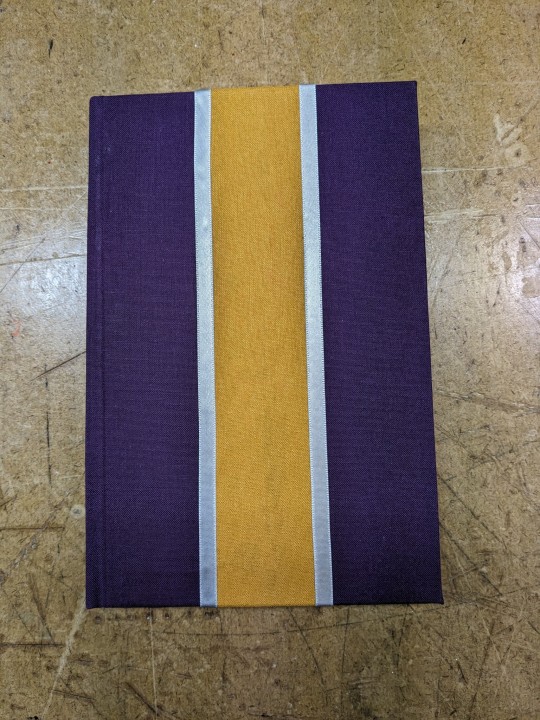


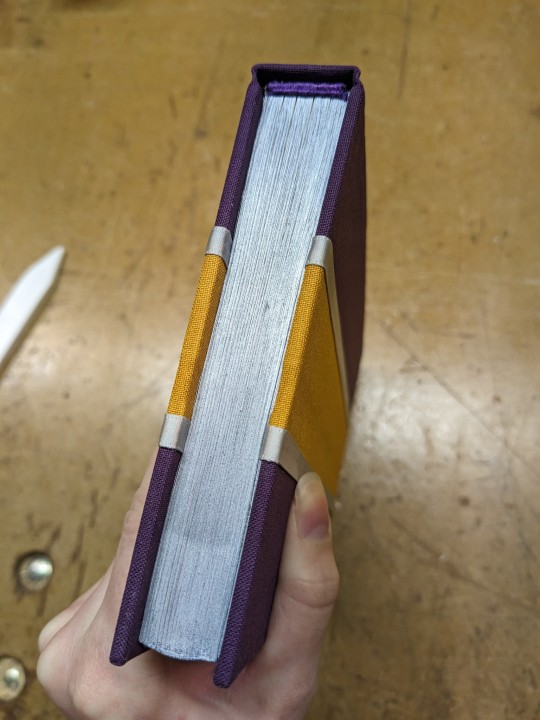

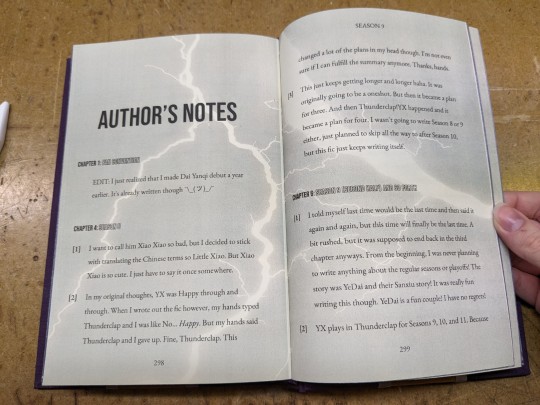
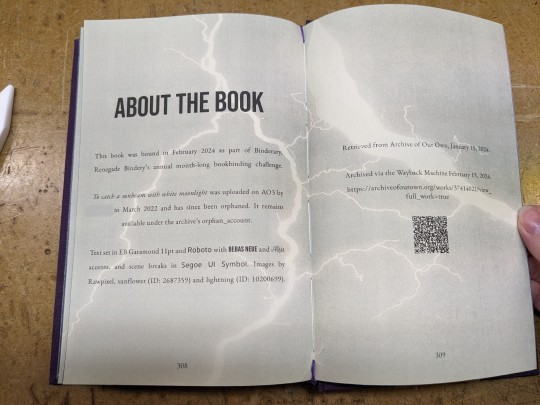
to catch a sunbeam with white moonlight
Author: orphan_account [this work has been orphaned and is no longer associated with it's author]
Fandom: 全职高手 | The King's Avatar
Rating: General Audiences
Category: F/M, Gen, M/M
Words: 55,720
At a Glory convention, Dai Yanqi meets Ye Xiu who is helping Su Mucheng buy her favorite doujinshi. They surprisingly hit it off as they browse through all the doujinshi about their peers and talk about Glory.
About the book
FONTS: EB Garamond (body text, title), Roboto (body text - electronic), Bebas Neue (title, headings), Alfie (title), Segoe UI Symbol (scene breaks - 'gear without hub')
IMAGES: Sunflower (Rawpixel, ID: 2687359), lightning (Rawpixel, ID:10200699)
MATERIALS: Domtar Earthchoice (textblock - 20lb, cream, 11x17 cut down to 8.5x11), Recollections paper pad (endpapers - Dark Watercolor Florals), Iris bookcloth (covers - Eggplant), Verona bookcloth (covers - Hot Toffee), Ribbon (covers - 1/4", shell grey), embroidery floss (endbands - 209 Very Dark Lavender), leather cording (endbands - 1.4mm), Ceramcoat acrylic paint (painted edges - metallic silver), Anita's acrylic paint (painted edges - 11038 Purple), Reeves acrylic paint (painted edges - Violet & Crimson & Blue Lake, Payne's Gray), waxed linen thread (sewing textblock - 30/3, white), Books by Hand (glue - pH neutral PVA)
PROGRAMS USED: Affinity Publisher (typesetting), Affinity Designer and Affinity Photo, LibreOffice Writer (QR codes), Bookbinder-JS (PDF imposer)
BINDING STYLE: Split-board binding, French double-core endbands
(Belated) Binderary Book 2024
My first year participating in Binderary and I'm 2/2 with my goals, albeit slightly late (even with the added leap day).
Goal No. 1: Bind a book!
This fic is an orphaned work, with no author available for me to reach out to. Convenient, since it was a last-minute decision.
Goal No. 2: Finish typesetting the fic that got me into this whole bookbinding/fanbinding hobby!
Bad Boys JEDI Style is a 217 chapter, 908k word "comedy of errors: in which our heroes are recruited to film a reality holo-drama". Much to my despair, the fic I loved had been deleted from every site it was uploaded to, and I was left kicking myself for not having downloaded a copy from AO3.
Shout out to Kam and Lofe, whose wonderful Binderary demos were put to use in the making of this book! Kam's French Double-Core endbands demo was super helpful, sizing up the 'textblock' and components made it easy to actually see what's happening with the sewing. Loffe's demo introduced me to the split-board binding technique and, sleep-deprived hiccup notwithstanding, I think I might find it easier then bradel style binding! Need to bind more books to know for sure (such a hardship 😔).
In other new-s, I took my dad's recent workshop baby for a spin. The bookbinding plough works like a dream! I tried a hidden fore-edge painting for the first time (just a solid colour), but the purple is lost under the Payne's Gray basecoat I applied to the silver painted edges. Adding ribbon to the cover was also new (mostly due to the fact that I never remember until the endpapers are already pasted down).

On the Design
Cover
This is a Team Thunderclap!Ye Xiu AU, so the cover was based on Team Thunderclap's uniforms from the donghua (from the one screencap of the team I found, see below): purple across the shoulders and forearms of their jackets with a yellow stripe down the centre. I added silver ribbon as a nod to the white of the jackets as well as the grey gear of the team's logo. Also in reference to the title: yellow=sunlight, silver=moonlight.
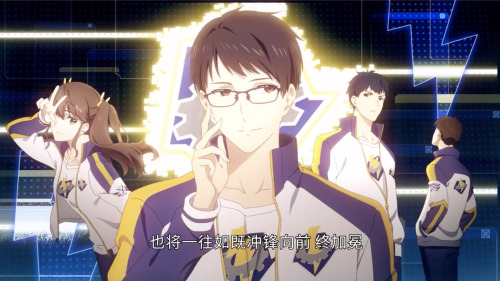
Title Page
The title page stumped me for a while. While brainstorming title page design ideas, I thought about what the title means. In English it's poetic but nonsensical, so I wondered if maybe it held some meaning in Chinese?
As it turns out, it does. Kind of. Maybe. (If I stretch and reach for it, it makes sense). According to a quick search of one webpage for each query, "'White Moonlight' usually refers to a person or thing that is elusive in the heart, has always been loved, but cannot be touched" or "an 'unforgettable first love'." The sunbeam itself might be Ye Xiu, the figurative ray of light, the hero, the gaming idol. Or 'catching a sunbeam' could refer to how "sunflowers turn their heads to catch every sunbeam."
The potential meaning I have cobbled together is how Dai Yanqi turns Ye Xiu's head and captures his heart by sharing the (SanXiu-ified) story of Su Muqiu, the aforementioned white moonlight. Is this what the author intended? Who knows. But it does seem plausible enough to inspire me.
I ended up using both the idea of sunflowers and Thunderclap's uniforms (again). Lightning referencing the team's logo, and also the white colour of a flash of lightning which is kind of like moonlight. The logo's background is blue, as is the uniform as seen on the cover of the manhua featuring the captain Xiao Shiqin (see below), so I made the background blue-purple.
Endpapers

The (not-actually-)sunflowers carried over to the endpapers, as well as the grey colour from the gear in Thunderclap's logo.
Endbands
Kept these simple. A solid purple, as close as I could get to the bookcloth. I didn't want to draw attention away from the stripes on the covers or the silver edges.
Probably could've gone for thicker cores.
The text
For the scene breaks I used a special character of a gear. The cog also looks like a sun. Which is fun because it can reference Thunderclap, the title (sunbeam), and my design choice of sunflowers.
I reused the lightning image at 50% opacity as a background to set apart the backmatter.
Misc.
Recently, I've begun to increase my efforts of preseving fanfiction and safeguarding the stories I love from purges and takedowns. (Sparked by the December 2023 scandal about Sony announcing an upcoming removal of content including the movies and TV shows that people have purchased).
This fic has been archived via the Wayback Machine at https://web.archive.org/web/20240215155152/https://archiveofourown.org/works/37414021?view_full_work=true.
Also, curses be upon Rawpixel. Since the time that I had downloaded the images, they have now be placed behind the premium user paywall (along with a number of other graphics and elements that used to be free).
50 notes
·
View notes